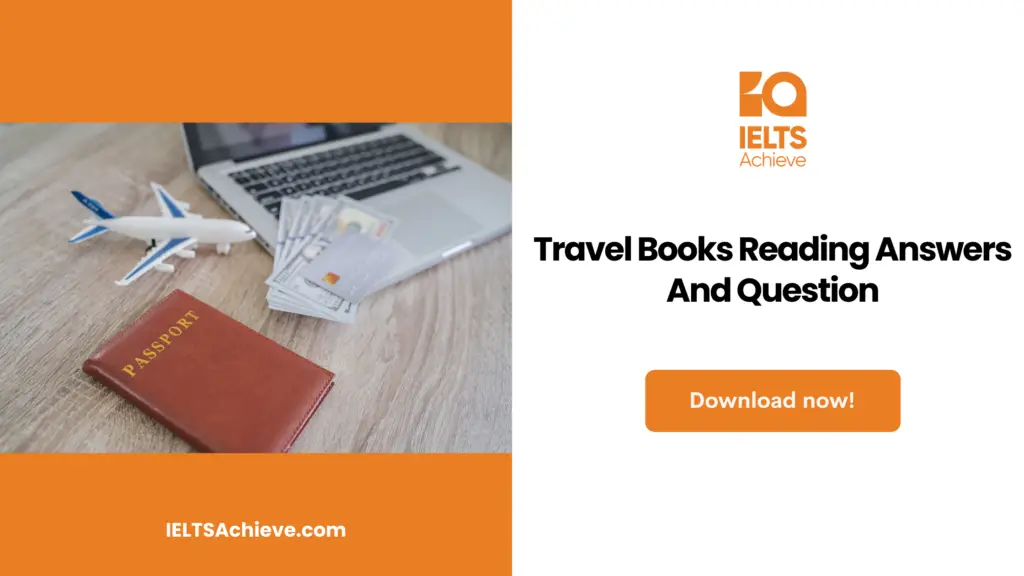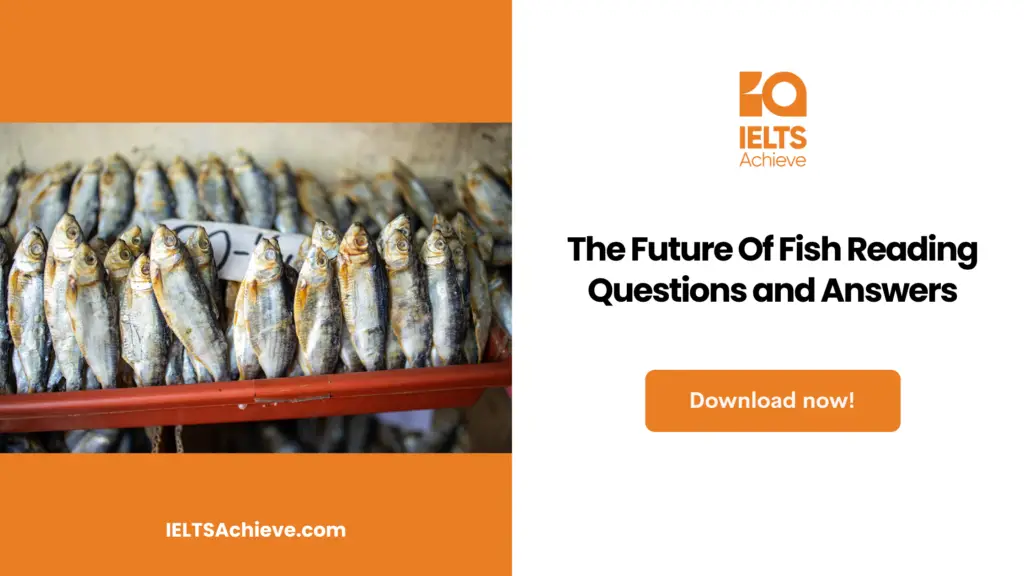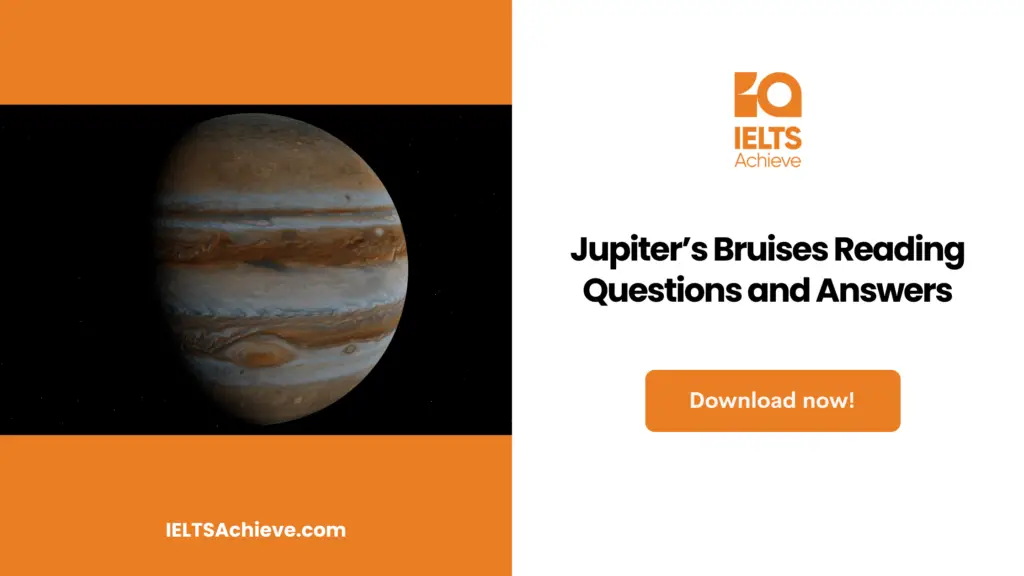The Blog post contains the following IELTS Reading Questions:
- IELTS Reading Multiple Choice Questions
- IELTS Reading Table Completion
Stay informed and prepared for success – Explore our comprehensive Reading Test Info page to get valuable insights, exam format details, and expert tips for mastering the IELTS Reading section.
IELTS Reading Passage: Travel books

Travel Books
A. There are numerous reasons why people have ventured outside of their own societies. Some travellers might have just wanted to quench their curiosity about the rest of the world. However, until recently, travellers did set out on their journeys for factors other than piqued curiosity. The traveler’s accounts offer a wealth of insightful information about these foreign places and open a window to a better understanding of the local cultures and histories, but they also serve as a mirror for the travellers themselves because they give them a better understanding of who they are.
B. Fragmented travel accounts first appeared in Mesopotamia and Egypt in ancient times, and records of foreign travel started to appear soon after writing was invented. Travel accounts became a popular literary genre after the formation of large, imperial states in the classical world, and they held an especially strong appeal for rulers desiring useful knowledge about their realms. In order to learn more about the history of the Persian wars, the Greek historian Herodotus wrote about his travels to Egypt and Anatolia. Based on journeys made in the first century BCE in search of allies for the Han dynasty, the Chinese envoy Zhang Qian described much of central Asia as far west as Bactria (modern-day Afghanistan). The vast compendia of geographic knowledge that Hellenistic and Roman geographers like Ptolemy, Strabo, and Pliny the Elder compiled were based on their own travels through most of the Mediterranean region as well as the accounts of other travellers.
C. Travel to foreign countries was greatly influenced by trade and pilgrimage during the post-classical era (roughly 500 to 1500 CE). Many parts of the eastern hemisphere were sought after by Muslim traders. They provided the first written accounts of societies in sub-Saharan West Africa and described the lands, peoples, and commercial goods of the Indian Ocean basin from East Africa to Indonesia. Devout Muslims travelled as pilgrims to Mecca to perform the hajj and visit the Islamic holy sites, while traders set out in search of trade and financial gain. Millions of Muslims have followed the prophet Muhammad’s example since his first pilgrimage to Mecca, and thousands of hajj accounts have detailed their experiences. East Asian travellers followed many of the roads and sea lanes in the eastern hemisphere during the post-classical era, though they were not quite as well-known as Muslims. Devout East Asian Buddhists travelled great distances on pilgrimages, and Chinese traders frequently travelled to South-East Asia and India. On occasion, they even ventured to East Africa. Numerous Chinese Buddhists travelled to India between the fifth and ninth centuries CE to study with Buddhist teachers, gather sacred texts, and visit sacred sites. Many pilgrims’ experiences, including those of Faxian, Xuanzang, and Yijing, were chronicled in written accounts. Buddhists from Japan, Korea, and other countries also travelled to other countries in search of spiritual enlightenment, although their numbers were not as great as those of the Chinese pilgrims.
D. Early in the post-classical era, medieval Europeans did not travel as extensively as their Muslim and East Asian contemporaries, despite the fact that ever-increasing numbers of Christian pilgrims travelled to Jerusalem, Rome, Santiago de Compostela (in northern Spain), and other holy sites. However, after the 12th century, numerous merchants, pilgrims, and missionaries from medieval Europe travelled widely and left behind travel diaries; the best-known of these is Marco Polo’s account of his journeys and stay in China. Europeans searched for new and more direct routes to Asian and African markets as they became more familiar with the larger eastern hemisphere and the lucrative commercial opportunities it offered. Their efforts eventually led them to the Americas and Oceania in addition to travelling to every region of the eastern hemisphere.
E. In contrast to Muslim and Chinese travellers and travel writers in post-classical times, European explorers, conquistadors, traders, and missionaries dominated the early modern era (roughly 1500–1800 CE). In early modern times, Muslim and Chinese travel was by no means stopped. However, Europeans travelled to remote regions of the world, and European printing presses produced thousands of travelogues that described distant places and peoples for an audience that seemed to have an insatiable appetite for news about the rest of the world. A number of editors, including Giambattista Ramusio, Richard Hakluyt, Theodore de Biy, and Samuel Purchas, compiled a large number of travel accounts and made them available in sizable published collections due to the volume of travel literature at the time.
F. European travellers explored the interior regions of Africa and the Americas during the 19th century, sparking a new wave of travel writing. While this was going on, European colonial administrators wrote extensively about the societies of their colonial subjects, particularly in the colonies they founded in Asia and Africa. By the middle of the 20th century, attention was also shifting the other way. Travellers from Asia, in particular, visited Europe and the United States in an effort to learn organisational principles that would be helpful for their own societies, despite being painfully aware of the military and technological prowess of European and Euro-American societies. The Japanese reformer Fukuzawa Yu-kichi and the Chinese revolutionary San Yat-senauthor were two of the most notable of these travellers who heavily drew on their overseas observations and experiences in their own writings.
G. Explosions in both the frequency of long distance travel and the volume of travel writing were seen in the 20th century as a result of the development of affordable and dependable modes of transportation. While there was still a lot of travel for the same reasons as in the past—business, administration, diplomacy, pilgrimage, and missionary work—more efficient mass transportation methods allowed for the growth of new types of travel. Mass tourism emerged as a significant form of consumption for people living in the world’s wealthy societies, making it the most distinctive of them. Travelling allowed people to experience new places like Rome’s landmarks, a Caribbean cruise, a Great Wall of China hike, some Bordeaux wineries, or a Kenyan safari. To accommodate these travellers, a peculiar variation of the travelogue emerged: the guidebook, which provided recommendations on where to eat, stay, shop, observe local customs, and see all the important sights. The global economy has been greatly impacted by tourism, but other recent forms of travel have also had a significant impact.
Unlock your full potential in the IELTS Reading section – Visit our IELTS Reading Practice Question Answer page now!
Recommended Questions:
Renewable Energy IELTS Reading Question with Answer
Travel books Reading Questions
Questions 1-2
Choose the correct letter A, B, C or D. Write your answers in boxes 1-2 on your answer sheet.
1. When it first started, why did the majority of people travel?
A. Researching one’s own culture
B. Business
C. Better familiarity with other people and places
D. Publishing travelogues
2. Why did the author say writing travel books is also “a mirror” for travellers themselves?
A. Travellers keep journals of their own experiences.
B. Because travellers consider their own culture and way of life.
C. Because it broadens our understanding of world cultures.
D. As a result of its relevance to the evolution of human society.
Ready to improve your performance in Multiple Choice Questions (MCQs)? Click here to access our comprehensive guide on how to tackle MCQs effectively in the IELTS Reading section.
Questions 3-5
Choose the correct letter A, B, C or D.
Write your answers in boxes 37-40 on your answer sheet.
3. Why were the imperial rulers especially interested in these travel stories?
A. Reading travel stories was a popular pastime.
B. The accounts are often truthful rather than fictional.
C. Travel books played an important role in literature.
D. They desired knowledge of their empire.
4. Who were the largest group to record their spiritual trips during the post-classical era?
A. Muslim traders
B. Muslim pilgrims
C. Chinese Buddhists
D. Indian Buddhist teachers
5. During the early modern era, a large number of travel books were published to
A. meet the public’s interest.
B. explore new business opportunities.
C. encourage trips to the new world.
D. record the larger world.
Ready to improve your performance in Multiple Choice Questions (MCQs)? Click here to access our comprehensive guide on how to tackle MCQs effectively in the IELTS Reading section.
Questions 6-13
Complete the table on the next page.
Choose NO MORE THAN TWO WORDS from Reading Passage 234 for each answer.
| Time | Traveller | Destination | Purpose of Travel |
| Classical Greece | Herodotus | Egypt and Anatolia | To compile information for the study of (6) ……………….. |
| Han Dynasty | Zhang Qian | Central Asia | To seek (7) ……………….. |
| Roman Empire | Ptolemy, Strabo, Pliny the Elder | The Mediterranean | To acquire (8) ……………….. |
| Post-classical era (about 500 to 1500 CE) | Muslims | From East Africa to Indonesia, Mecca | For trading and (9) ……………….. |
| 5th – 9thCenturies CE | Chinese Buddhists | (10) ……………….. | To collect Buddhist texts and for spiritual enlightenment |
| Early modern era (about 1500 to 1800 CE) | European explorers | The New World | To satisfy public curiosity for the New World |
| During 19th century | Colonial administrators | Asia, Africa | To provide information for the (11) ……………….. |
| By mid-century of the 1800s | Sun Yat-sen, FukuzawaYukichi | Europe and the United States | To study the (12) ……………….. of their societies |
| 20th century | People from (13) ……………….. countries | Mass tourism | For entertainment and pleasure |
Boost your performance in Summary, Notes, Table, and Flowchart Completion tasks. Click here to explore our detailed guide and learn how to effectively complete summaries, notes, tables, and flowcharts in the IELTS Reading section.
Unlock your full potential in the IELTS Reading section – Visit our IELTS Reading Practice Question Answer page now!
Recommended Questions:
Renewable Energy IELTS Reading Question with Answer
Travel books Reading answers
1. C
2. B
3. D
4. B
5. A
6. Persian wars
7. Allies
8. Geographical Knowledge
9. Pilgrimage
10. India
11. Colonies
12. Principles
13. Wealthy

We hope you found this post useful in helping you to study for the IELTS Test. If you have any questions please let us know in the comments below or on the Facebook page.
The best way to keep up to date with posts like this is to like us on Facebook, then follow us on Instagram and Pinterest. If you need help preparing for the IELTS Test, join the IELTS Achieve Academy and see how we can assist you to achieve your desired band score. We offer an essay correction service, mock exams and online courses.

